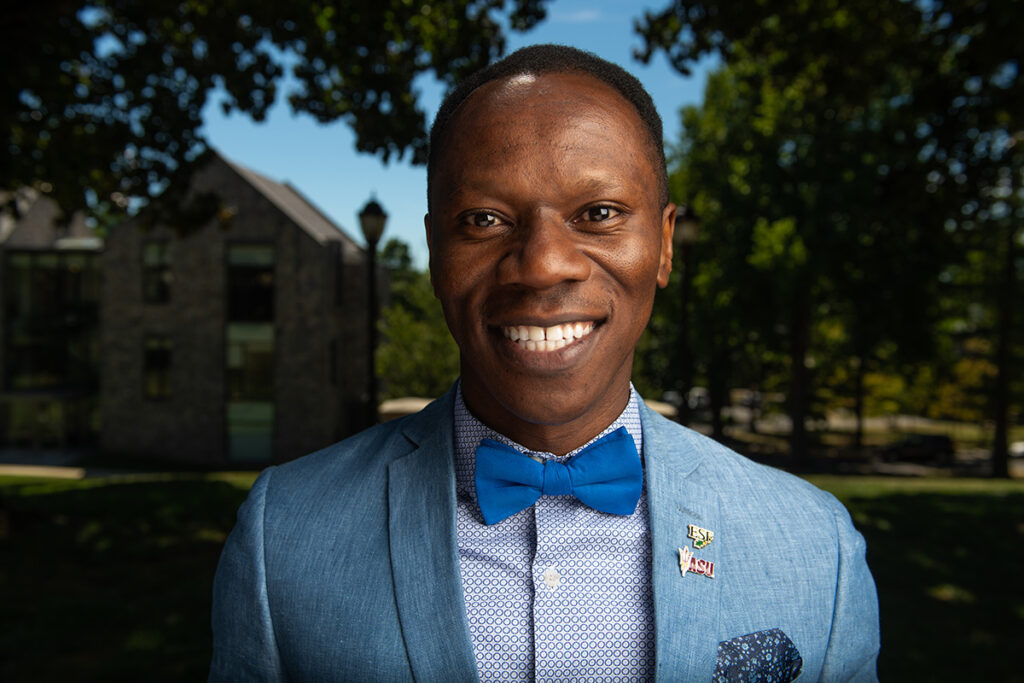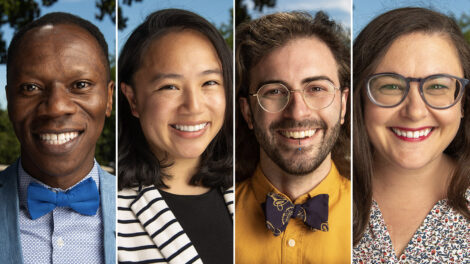Ernest Nkansah-Dwamena

I study: “Nature-society relationships, political ecology, critical development studies, sustainability, human rights, and social and environmental justice with a regional focus in Sub-Saharan Africa. My research focuses on understanding the consequences of transnational agriculture investments, also known as ‘land grabbing,’ on local livelihoods (food and water security), natural resources exploitation, poverty alleviation, and social networks and relationships. My work is informed not only by my background and training in the natural and social sciences, but also by having worked in several African countries, being a systems thinker, and having a lifelong commitment to critical praxis and social justice.”
Why? “I focus on sustainability and development issues because I believe we can work collaboratively to create equal and diverse opportunities for everyone—particularly marginalized and vulnerable groups in society—to improve their well-being and quality of life and contribute to the betterment of society. Working collaboratively with communities to identify socioeconomic problems and environmental justice concerns that impact their communities and designing and implementing research projects to tackle those issues can be a fulfilling and rewarding endeavor. You can see the broader impacts of your work, producing better outcomes. Even more exciting is when I involve students in research; it instills a sense of advocacy, responsibility, and civic engagement in them. It also ignites their passion for contributing to a better society.”
This fall, I’m teaching: “EVST 215: Environmental Policy”
What students can expect from me: “First, students can expect that I will genuinely care about their personal growth, development, and desire to succeed. Second, they should look forward to being motivated, inspired, challenged, and supported to do nothing less than their best in coursework. Third, they can expect to develop a positive mental attitude toward life, interdisciplinary thinking, lifelong learning, and problem-solving skills. Fourth, students can anticipate a welcoming classroom environment, regular feedback, and engaging lessons. Lastly, students should look forward to taking ownership of their learning and developing (a) new ways of thinking to tackle wicked problems and (b) competencies critical to adapting to the fast-changing and dynamic world.”
I’m excited to be here because: “I believe in the values of liberal arts education, and Lafayette is a nationally recognized leader in liberal arts education. I believe Lafayette offers exciting opportunities for interdisciplinary collaboration and scholarly engagement with colleagues and students in community-based learning to help promote campus-initiated civic engagement. I am also thrilled to have the chance to leverage my scholarship and international background to contribute to Lafayette’s commitment to sustainability, the environment, and social justice. Moreover, I particularly look forward to leading study abroad programs to help students develop their cultural competence and sense of global citizenship/responsibility and contribute to increasing Lafayette’s global reach/footprint. In addition, I’m excited to participate in the intellectual and academic life of the College as an engaged campus citizen, contributing to diversity, equity, and inclusive initiatives and the vitality of the academic community. In short, Lafayette presents opportunities to go the extra mile—above and beyond—assume leadership roles, work with Easton communities, and enrich students’ learning experience.”
Getting to know me: “I have played soccer all my life, although I have not had the opportunity to play recently. I love working out at the gym and hope to find some gym buddies. I inspire and motivate people.”
